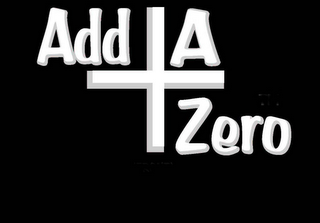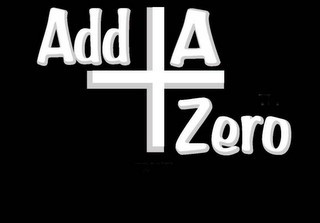In a recent decision on remand from the Federal Circuit, the Trademark Trial and Appeal Board (Board) rejected Petitioner adidas AG’s (adidas) claim that Respondent Christian Faith Fellowship Church (CFFC) abandoned its ADD A ZERO marks (both in standard character and design form), but agreed that the phrase, as used by CFFC in standard characters, fails to function as a trademark for apparel. The phrase rendered in standard character format was cancelled because it was an unregistrable informational phrase, but the design form of the mark used by CFFC was not. adidas AG v. Christian Faith Fellowship Church, Cancellation No. 92053314 (November 13, 2019) [not precedential].
Background
adidas filed an application to register the mark ADIZERO in September 2009. That application was refused based on CFFC’s U.S. Reg. No. 3173207 for ADD A ZERO (standard character) and U.S. Reg. No. 3173208 for:

adidas did not persuade the USPTO that its mark and CFFC’s cited marks differed. As a result, adidas requested suspension of its pending application so that it could petition to cancel CFFC’s registrations. adidas’s petition to cancel claimed: (1) CFFC did not make actual use of the ADD A ZERO trademark in interstate commerce on the date sworn to in its verified declaration to the USPTO; (2) CFFC abandoned its mark because of non-use with no intent to resume use; and (3) “Add A Zero” is an informational phrase and fails to function as a trademark.
In 2015, the Board granted adidas’s petition to cancel on the ground of nonuse, finding that the sale of two caps to an out-of-state resident at the CFFC’s bookstore prior to relevant date was de minimis and therefore insufficient to satisfy the “use in commerce” requirement of the Lanham Act. The Board declined to consider adidas’s abandonment and failure-to-function claims. adidas AG v. Christian Faith Fellowship Church, Cancellation No. 92053314 (TTAB September 14, 2015) [not precedential]
In 2016, the Federal Circuit reversed the Board’s decision, holding that the CFFC’s sale of the two hats could be regulated by Congress under the Commerce Clause and therefore constitutes “use in commerce” under the Lanham Act. The Court remanded the case to the Board for consideration of the abandonment and failure-to-function claims. Christian Faith Fellowship Church v. adidas AG, 841 F.3d 986 (Fed. Cir. 2016).
The Board Decision On Remand
On remand, the Board first considered the question of whether CFFC’s lack of sales of any caps and minimal sales of shirts during the relevant period constituted “abandonment” under the Lanham Act. In general, Section 45 of the Lanham Act, 15 U.S.C. § 1127, provides for a rebuttable presumption of abandonment if a trademark has not been used during a three-year period. In this case, there was evidence that the CFFC sold two shirts during the relevant period. As the Federal Circuit had held, there is no de minimis test for “use in commerce.” Accordingly, the sale of two shirts was enough to overcome the abandonment claim as to shirts.
The Board likewise found that CFFC did not abandon use of the marks on caps. Though there was no sale of caps for a period of four years, the Board was satisfied that such non-use was “excusable” under the Lanham Act because the CFFC’s store was closed for renovation during that time. Trademark nonuse may be considered excusable where the holder of the registration is willing and able to continue use of the mark in commerce, but is unable to do so due to circumstances beyond its control. Therefore the Board rejected adidas’s abandonment claims.
The Board then considered adidas’s claim that the phrase “Add A Zero” is merely a commonly-used fundraising slogan that CFFC used as a simple informational message to its members to promote its building fund, rather than as a source indicator for the CFFC’s shirts or caps. To support this argument, adidas offered numerous new articles, webpages, and blog posts showing that “Add A Zero” had been used by CFFC solely to inform its members of the building fund. Additionally, adidas offered evidence that many third parties used “add a zero” to denote their own fundraising efforts.
The Board agreed that “the slogan ‘add a zero’ is informational and would be understood as such by the relevant public.” However, the Board did not cancel the design mark, U.S. Reg. No. 3173208, for:

The Board reasoned, “[n]otwithstanding the informational nature of the wording, the specific combination, placement and shading of the wording and design elements of this special form mark create an integrated whole with a single and distinct three-dimensional commercial impression; that is, the mark is unitary.”
* * *
Although this was an inter partes proceeding, the failure-to-function refusal can arise during ex parte trademark prosecution as well. Many trademark applicants file applications for phrases that seem to promote causes, with the idea that those “trademarks” will be placed on t-shirts or bumper stickers. The USPTO frequently denies registration of such phrases because they “fail to function” as trademarks for goods. This case may suggest that the way to register such phrases would be to also apply for a unitary design marks, in addition to (or instead of) applying to register the phrase in standard characters.